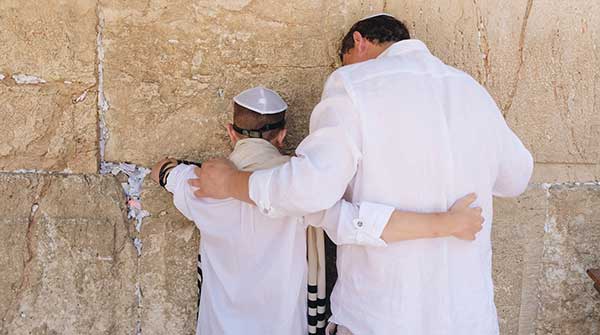Understanding the distinction is essential for fostering constructive dialogue and promoting a just and equitable world for all
 As we witness the tragic events unfolding in Gaza, where Israel’s recent military campaign is estimated to have claimed the lives of over 8,000 Palestinians, including more than 3,000 children, and displaced 1.4 million residents, we are also confronted with a troubling conflation of Palestinian activism with antisemitism.
As we witness the tragic events unfolding in Gaza, where Israel’s recent military campaign is estimated to have claimed the lives of over 8,000 Palestinians, including more than 3,000 children, and displaced 1.4 million residents, we are also confronted with a troubling conflation of Palestinian activism with antisemitism.
As both a Jew and a long-time supporter of the Palestinian liberation movement, I am deeply frustrated by the tendency to equate antisemitism with anti-Zionism.
However, it comes as no surprise that pro-Israeli Jewish organizations like the Centre for Israel and Jewish Affairs (CIJA) exploit the term antisemitism to suppress criticism of Israel. In October, CIJA hosted a conference titled “Antisemitism: Face It, Fight It,” which, according to reports, primarily focused on advocating for Israel.
I applied to attend this conference with the hope of engaging in conversations about the antisemitism I encounter and how it drives my support for Palestine. My application was declined, and when a small group of my fellow Jewish activists and I protested the ongoing Palestinian crisis outside the conference, the police were called on us.
Is expressing solidarity with Palestinian human rights and demanding an end to Israeli airstrikes on Gaza antisemitic? I participated in an Oct. 9 rally in Toronto wearing attire that unmistakably identified me as Jewish. To my surprise, I received numerous hugs and expressions of gratitude from the crowd. Only at such rallies do people go out of their way to thank me for my Jewish identity. Organizers consistently emphasize that these gatherings do not promote hatred of Jews but rather call for an end to Zionism.
What many media outlets and politicians fail to distinguish is the difference between criticizing Israel or anti-Zionism and harbouring hatred towards Jewish people, which is antisemitism. Zionism, a political ideology advocating for a Jewish homeland, was popularized in the late 1800s and is relatively recent in Jewish history.
Critiquing the actions of the state of Israel, which has involved the forced displacement of Palestinians since 1948 and the ongoing denial of their basic rights, is not synonymous with hating Jews. Criticism of this oppressive state not only does not harm me as a Jew but aligns with my belief in collective liberation and universal human rights. When we advocate for autonomy and dignity for all, it includes the Jewish community. When we challenge rhetoric and actions that dehumanize any group, we humanize all people.
The culture and history of my Jewish heritage extend far beyond the establishment of Israel in 1948. In fact, my grandparents predate the founding of the Israeli state. Zionism is a political ideology, not a religion or faith. Israel does not represent the entirety of the Jewish people; it is an imperial colonial project, similar to historical colonialism in our own country.
Because I stand against settler colonialism, on Sept. 30, I wear an orange shirt. Since Oct. 7, when Israel initiated a heavy bombing campaign and siege of Gaza in response to Hamas attacks, I proudly wave the Palestinian flag.
In Judaism, we are taught the concept of “tikkun olam,” or repairing the world, and to pursue justice rather than standing idly by. These teachings are central to my Jewish faith, and I view them as incompatible with the actions of the Israeli government.
As the granddaughter of a Holocaust survivor, I recognize genocide when I see it, just as I recognize antisemitism, which I have personally experienced. Diluting the term antisemitism by applying it indiscriminately to all critiques of the settler-colonial nation of Israel dismisses the very real experiences of myself and other Jewish individuals in various aspects of our lives.
Political protests, such as boycotts against establishments like Cafe Landwer in Toronto, are part of the Boycott, Divestment, and Sanctions (BDS) movement – a form of nonviolent resistance initiated in 2005 by Palestinian civil society organizations. BDS draws inspiration from the successful tactics employed during South African apartheid and urges individuals, institutions, and governments to cease funding apartheid.
In contrast to these political protests, which some powerful figures erroneously label as antisemitic, genuine antisemitism is exemplified by horrific acts such as the 2018 shooting at the Tree of Life synagogue in Pittsburgh and the recent death threats made by a Cornell student. It involves hate symbols and attacks on synagogues, attempts to burn them down or shoot bullet holes through them, as witnessed in Montreal last November. Antisemitism also encompasses everyday experiences, such as difficulties requesting time off for high holidays or enduring hurtful stereotypes.
It is crucial to recognize that antisemitism cannot be equated with critiques of Israel’s policies or anti-Zionism. Understanding this distinction is essential for fostering constructive dialogue and promoting a just and equitable world for all.
Anna Lippman, a third-generation Ashkenazi Jew, is a PhD student in Sociology at York University.
For interview requests, click here.
The opinions expressed by our columnists and contributors are theirs alone and do not inherently or expressly reflect the views of our publication.
© Troy Media
Troy Media is an editorial content provider to media outlets and its own hosted community news outlets across Canada.

